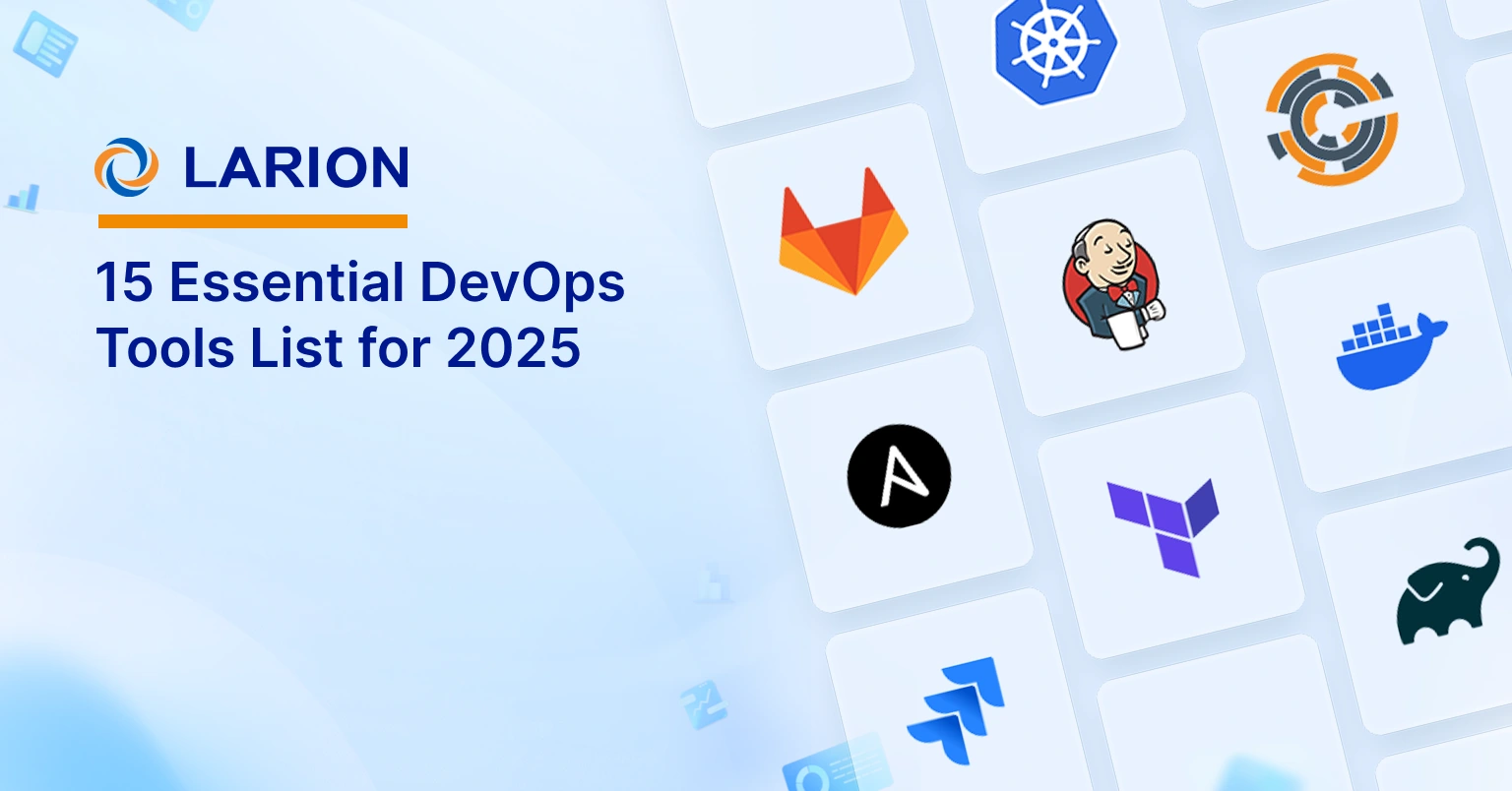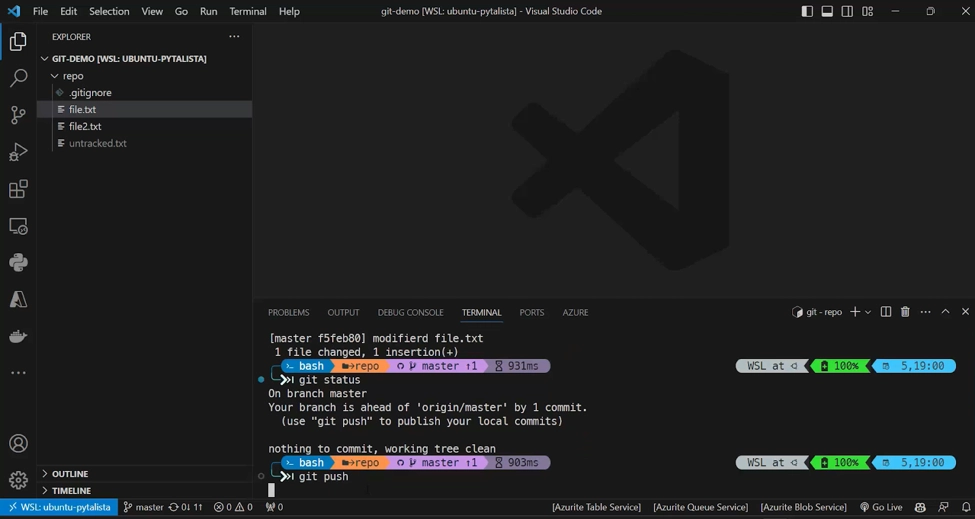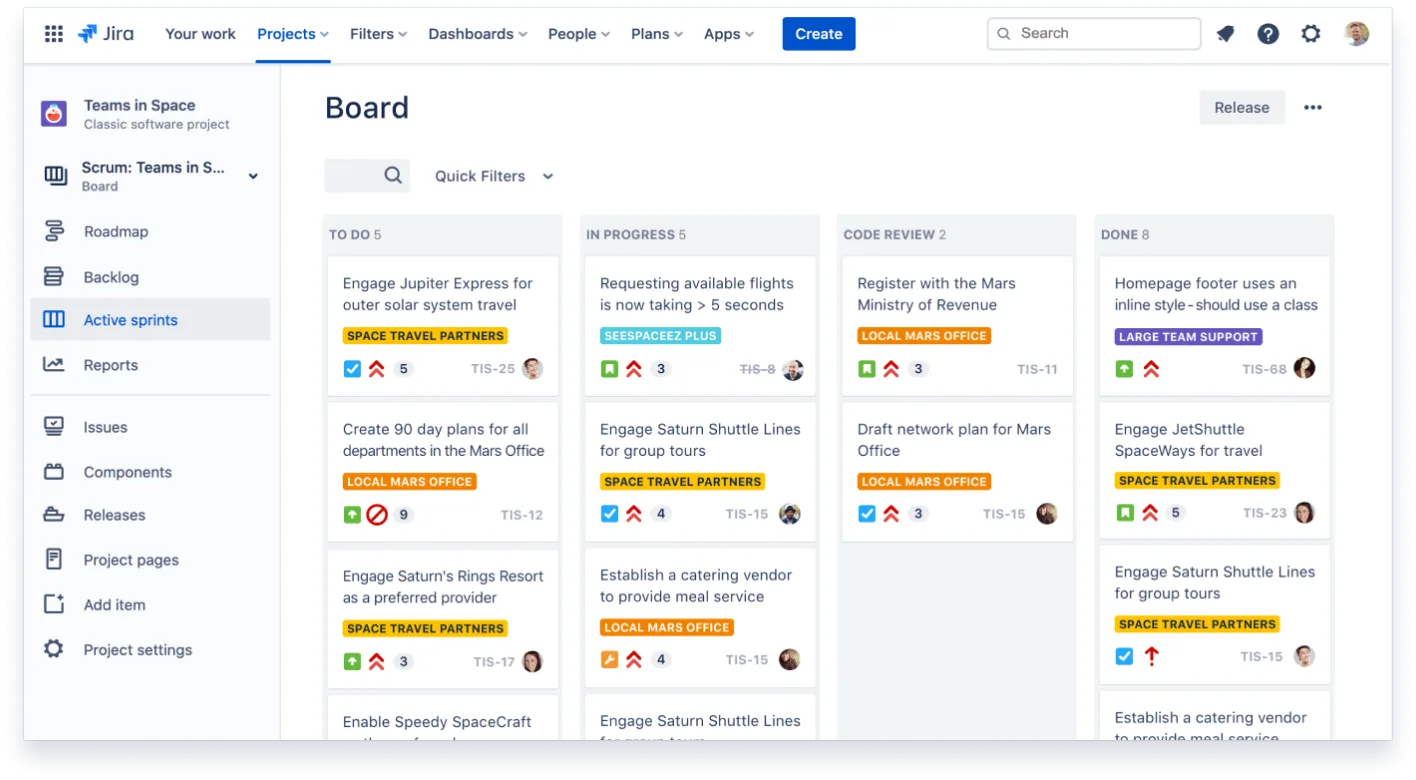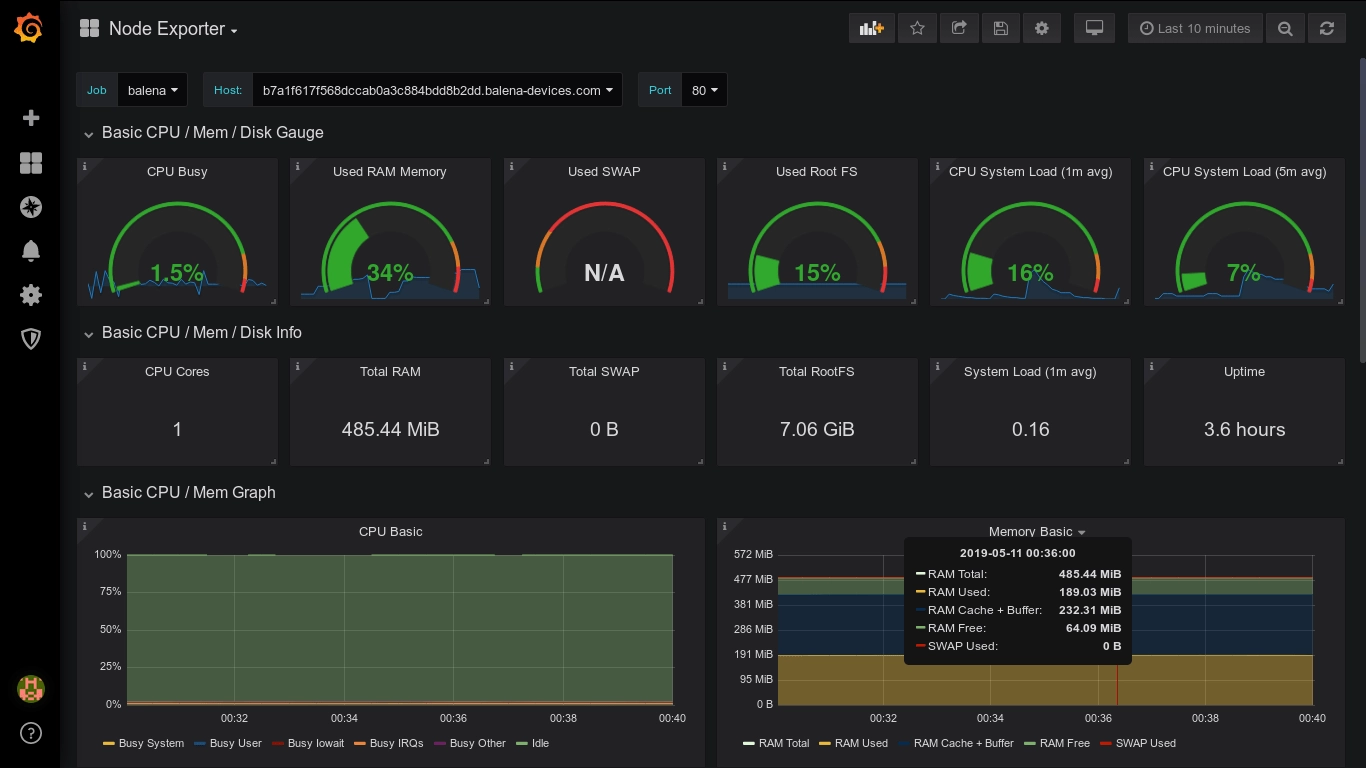
DevOps success hinges on a robust toolchain. This curated list highlights top – tier DevOps tools for CI/CD, automation, orchestration, and other essential pipeline components.
Criteria to consider for the suitable DevOps tools
When selecting tools and products to support your organization’s DevOps goals, it’s important to consider a few key areas. These goals often vary based on the organization’s structure, operations, and specific environment.
Here are some factors to keep in mind when choosing the right tools for any project or organization:
- Application & Technology Infrastructure – Assess your software platforms and the infrastructure technologies supporting them. Can the tool operate across cloud, on-premises, or hybrid environments?
- Developer Process Integration – Determine whether the tool can integrate with your current development tools, IDEs, and project management or ALM platforms.
- Open and Broad Integration – Verify that the tool can integrate with various DevOps pipeline technologies, such as:
- Testing frameworks (e.g., Selenium, TestNG, Jest, JUnit, Mocha)
- Communication platforms (e.g., Slack, Teams)
- Project management systems (e.g., Jira)
- CI & CD platforms (e.g., Jenkins, CircleCI, GitHub)
- Ease of Use and Scalability – Ensure the tool is easy for your team to learn and implement and that it can scale as your organization grows and team capabilities advance.
- Licensing vs. Cost Models – Consider whether the tool is open-source or commercial, and look beyond just licensing costs. Free tools may save on licensing fees but could require more resources for deployment and maintenance. Also, understand the licensing model (e.g., per seat or per usage). Transparent licensing and cost structures can simplify planning and reduce future barriers to implementing your DevOps pipeline across teams and projects.
Top 15 DevOps tools
Here is our curated list of the top 15 DevOps tools, organized by category, to help enhance your development and delivery processes. Please note that the numbers are for reference only and do not represent any ranking, as each tool excels in its specific area of the DevOps workflow.
| Top containerization tools | 1. Docker
2. Kubernetes |
| Top CI/CD tools | 3. Jenkins |
| Top configuration management tools | 4. Ansible
5. Chef |
| Top version control systems | 6. Git |
| Top infrastructure provisioning tools | 7. Terraform |
| Top build tools | 8. Gradle |
| Top project management tools | 9. Jira
10. Prometheus |
| Top cloud platforms | 11. AWS
12. Azure |
| Top testing tools | 13. Katalon Studio
14. Selenium |
| Top development environment tools | 15. Vagrant |
Top containerization tools
Containerization tools package an application and its dependencies into a ” container”, ensuring consistent performance across any deployment environment. By isolating the application within a container, these tools create a stable, self-contained environment that operates independently of the host system.
1. Docker

Docker is a platform that allows developers to automate the deployment and management of applications in lightweight, portable containers. These containers package an application and its dependencies together, ensuring that it runs consistently across different environments.
Key features:
- Each Docker container is isolated from the others, meaning you can run multiple containers on the same host without them interfering with each other
- Containers share the host OS kernel, making them more lightweight and resource-efficient compared to traditional virtual machines
2. Kubernetes

While Docker creates containers, Kubernetes, often abbreviated as K8s, automates the deployment, scaling, and management of containerized applications. Originally developed by Google, it has become a standard for managing containerized workloads and services
Key features:
- Builds upon 15 years of experience of running production workloads at Google
- Run on almost any infrastructure, including public clouds, private clouds, and on-premises environments
- Expose a container using DNS names or IP addresses and automatically load balance traffic to ensure stable deployment
- Wide adoption with the largest developer community support
- Allows automatic mounting of storage systems of your preference
- Offers advanced features like automated rollouts and rollbacks, self-healing, automatic bin packing, and horizontal scaling
Best Continuous Integration and Deployment (CI/CD) tools
3. Jenkins
Jenkins is an open-source automation server which helps to automate the parts of software development related to building, testing, and deploying, facilitating continuous integration and continuous delivery.
Key features:
- Supports 2,000+ plugins
- Extensive documentation and community support
- Easy installation & configuration
- Clearly view builds and branches of code via a clean and intuitive GUI
- Offer detailed build histories and precise error locations
Top configuration management tools
Configuration management tools play a crucial role in deploying applications and infrastructure. They help maintain the desired state of servers and applications, ensuring configurations are applied idempotently and consistently through automating
4. Ansible

Ansible is an open-source software provisioning, configuration management, and application-deployment tool.
Key features:
- No need for agents on managed nodes
- Uses YAML for configuration, making it easy to read and write.
- Manages thousands of nodes from a single control machine
- 750+ built-in modules
5. Chef

Chef automates the management of infrastructure, enabling users to define infrastructure as code using a Ruby-based DSL. It helps manage servers on physical, virtual, and cloud environments efficiently.
Highlights:
- Used by 1,000+ customers with over 50 Fortune 500 companies
- Simple or comprehensive system changes across numerous servers with minimal human intervention
- Accommodate a wide variety of technologies, including challenging-to-automate legacy desktop applications
Top version control systems
6. Git

Git is a distributed version-control system that tracks changes in source code during software development. It supports collaboration among developers and helps manage code changes effectively.
Highlights:
- Free and widely supported
- Offer multiple solutions for managing code repositories and team collaboration on codebases and branches
- Seamless integration into IDEs such as Eclipse, VS Code, and IntelliJ
Best infrastructure provisioning tools
Infrastructure provisioning tools are essential for automating the setup of computing infrastructure, including creating and managing virtual machines, networks, storage, and other cloud resources. Through automation, these tools allow for more efficient and consistent deployment of infrastructure.
7. Terraform

As an open-source infrastructure-as-a-code (IaC) tool by HashiCorp, Terraform is known for its versatility across multiple cloud providers, including AWS, Azure, and Google Cloud. Its declarative language allows for consistent and repeatable infrastructure setup.
Best build tools
Build tools are crucial for automating the creation of packages and deployable artifacts.
8. Gradle

An open-source build system for Java, Android, and Kotlin developers.
Highlights:
- 50+ million downloads/month
- Easily added dependencies and plugins to support multi-module builds.
- Seamlessly integrates with popular development tools and platforms
- Highly extensible, allowing developers to create custom plugins and extensions to meet the specific needs of their projects
- Uses a Groovy-based DSL (Domain-Specific Language) to define builds, allowing for clear and concise build scripts
Top project management tools
9. Jira

Jira is a popular platform for issue tracking and project management, available both as a SaaS solution and an on-premises option.
Highlights:
- Supports Scrum, Kanban, and hybrid agile methodologies with customizable boards.
- Provides detailed reports and dashboards, including agile metrics like burndown and velocity charts
- Easily integrate with Bitbucket, GitHub, and Microsoft Teams to streamline and automate your workflow.
- Offers automation rules to streamline repetitive tasks
Best Monitoring Tools
Monitoring tools offer valuable insights into the performance, availability, and health of applications, infrastructure, and business processes. They facilitate proactive monitoring, alerting, and troubleshooting to maintain optimal performance and reliability.
10. Prometheus

Prometheus is an open-source monitoring and alerting toolkit originally developed by SoundCloud
Highlights:
- Enables precise, high-fidelity time series data storage and retrieval with flexible querying
- Allows complex and efficient queries tailored to specific monitoring needs
- A vast array of exporters and client libraries for easy integration with different applications and systems.
Best cloud platforms
11. AWS

AWS is a comprehensive and widely adopted cloud platform, offering over 200 fully featured services from data centers globally.
Highlights:
- Robust security measures, including encryption and compliance certifications.
- Continuously introduces new services and features to stay ahead of the curve
- Supports a wide range of services and solutions, catering to various business needs
12. Azure

Microsoft Azure is a robust cloud computing platform that offers a wide range of services, including computing, analytics, storage, and networking..
Highlights:
- Robust security measures, including encryption and compliance certifications.
- Continuously introduces new services and features to stay ahead of the curve
- Supports a wide range of services and solutions, catering to various business needs
Top Testing tools
13. Katalon Studio

Katalon is an all-in-one test automation platform designed for beginners and experienced testers. It provides an integrated environment with tools for creating, executing, and managing tests across multiple platforms (web, mobile, desktop, and APIs).
Highlights:
- User-friendly interface with record-and-playback capabilities.
- Drag-and-drop capabilities and pre-built keywords for test automation
- Uses AI/ML for self-healing tests, reducing maintenance efforts
- Built-in CI/CD and reporting integrations.
- Free community edition available, with premium versions for advanced features
14. Selenium

Selenium is a widely-used open-source framework for automating web browser interactions. It provides powerful tools and libraries for building scalable, custom test automation frameworks.
Highlights:
- Completely free to use, with a vast community for support and plugins
- Highly customizable through integrations with third-party tools and libraries
- Works with multiple programming languages: Java, Python, C#, Ruby, JavaScript, and Kotlin
- Enables parallel test execution on multiple machines and browsers for scalability.
Top Development Environment Tools
15. Vagrant

Vagrant is a powerful open-source tool that simplifies the management and configuration of virtual development environments. It provides a consistent and repeatable way to set up environments using virtualization technologies such as VirtualBox, VMware, Docker, and others
Highlights
- Automates the creation of virtual environments using simple configuration files (Vagrantfiles)
- Works seamlessly on Windows, macOS, and Linux.
- Provides uniformity between development, staging, and production environments.
- Highly extensible with plugins to add functionality or support for additional virtualization providers.
Get Started on DevOps today
In this guide, we’ve explored some of the top DevOps tools that are transforming software development and delivery. From CI/CD automation to efficient infrastructure management, these tools empower teams to achieve agility, collaboration, and reliability in their workflows. However, selecting the right tools for your unique DevOps needs requires careful consideration of your team’s goals, existing systems, and future scalability.
Not sure where to start? Meet with our DevOps team today to ensure a streamlined DevOps process from start to finish, with the perfect toolkit customized to your unique needs.





